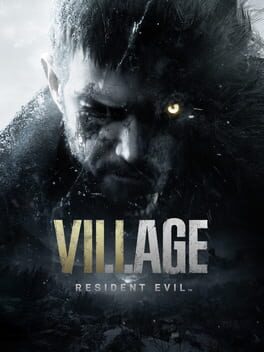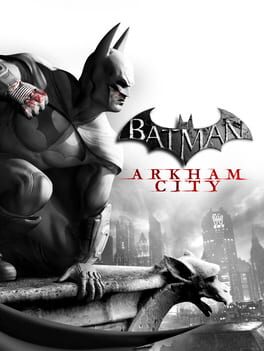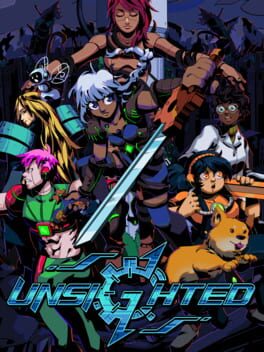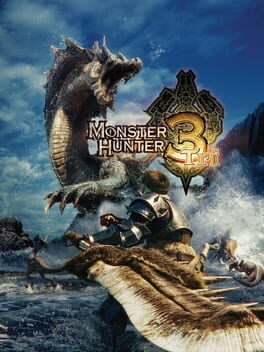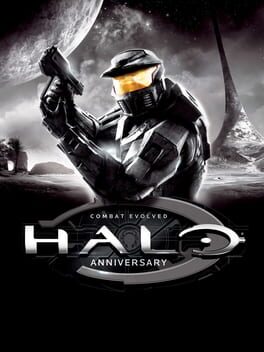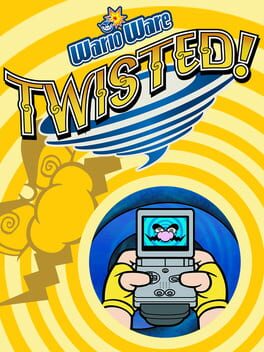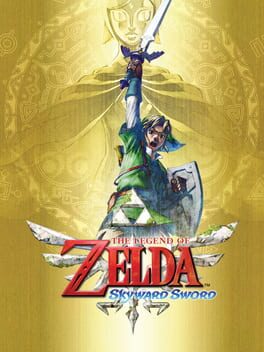Randinva
12 reviews liked by Randinva
I would like to apologize for all the times I said "Dark Souls II is bad for a Souls game, which is still pretty good."
It's truly incredible that a game which so obviously prioritizes quantity over quality still manages to feel so small. Every level is little more than a series of hallways connected by elevators, tunnels, trenches, and canyons. There is never any sense of place. When I played Bloodborne again recently, I constantly felt tricked by the sheer amount of detail outside of the play area, that the game was compensating for something; it's incredible that Dark Souls II came out only one year earlier and tries to cover the same tracks with little more than JPEGs of mountains. It's a PS3/360 game, sure, but it's still the most ugly and empty Souls game of its generation.
Combat is basically ruined. Positioning-focused playstyles are virtually useless because of how strong the enemies' rotational tracking is, not to mention many enemies have a slam attack that limits your walking speed even if it doesn’t make contact. Parrying has been slowed down to the point where it can't really be used reactively to most attacks. Dodging has had its effectiveness tied to a stat that most players won't understand the significance of unless they read a wiki or otherwise engage with a community outside of the game itself (undermining both the combat and the game's own integrated social features), and the hitboxes are sloppy enough that it doesn’t feel right anyway. Every aspect of Dark Souls II's combat design discourages active play; the shield is more central to the game's "conditioning" than in any other From Software game simply because it’s the only effective defensive option left.
Dark Souls II's ending is the same as the first, the player's character is given a choice; unlike the original however, the player does not actually choose, the choice is only implied. The fact that there is a Dark Souls sequel at all in the first place has already invalidated the player’s decision at the end of the prior game. Link the fire or let it die, the curse will return all the same. The entire game seems dreadfully aware of how pointless the endeavor of making another Dark Souls was in the first place. Its world has no believable structure, its characters have no memories and only sparse motivation. The gameplay has changed form not to try to be interesting on its own merits, but to induce the same feeling as the first game to the detriment of all else.
Dark Souls’ bloodstain system was an effective way of encouraging the player to learn the game; your souls are left wherever you died, and surely since you got there once before you can do it again, and probably have an easier time of it with newfound experience. Dark Souls II does everything it can to reproduce this effect not on the player-end, but within the level design. The game is full of dark areas, but if the player lights a torch it stays lit forever. Some areas have as many as four NPC invasions, but a defeated invader stays dead. Even regular enemies will stop respawning if the player kills them enough times. Dark Souls might have felt like a wall that you were chipping away at, but the change wasn’t happening in the game, it was happening in your head, in your hands. Here, the gameplay absolutely is just an obstacle to whittle away at.
Towards the end of the game, the player travels into the memories of dead giants. Their tree-like corpses give off some strange glow, like the insects in the game’s intro cinematic. To some extent I wonder whether this is meant to imply that the entire game takes place within a mere memory, that the lack of insight into the characters and the fragmented geography is meant to represent things not remembered. Perhaps too, the only value of the game is its intellectual property, the memory of Dark Souls.
People have always speculated about or wished for a sequel to Demon’s Souls or Bloodborne, but the conflict of those games is over, the threats which drove their premises are out of the picture. Dark Souls was itself the same, a total work, and making a sequel was always a fool’s errand. Some complain that the diegetic emphasis on dying and losing you souls is some kind of cheap marketing ploy, leaning into the games’ reputation for difficulty, but the very use of the Dark Souls brand was in the first place a cynical decision. What else was there for them to do?
Quelaag was a spider lady because the first flame was fading, and the witch of Izalith tried to conjur a new one; this artificial flame became chaos, a cursed lava that transformed people into insectoid demons.
Najka is a scorpion lady because Dark Souls had a bug lady too, and they want to do another one like that.
Sure, in the beginning Quelaag also probably started out as “just a cool idea for a boss”, but what made Dark Souls truly special was that everything, even silly video game bullshit like the monsters you fight, had its place in the world. Why was Blighttown poisonous, and why did the people in Blighttown look the way they did? Because Blighttown was in the runoff of the Lordran sewer system. Why are the Gutter and Black Gulch poisonous? Because it’s Dark Souls! There has to be a dark and difficult poison level! Why do the people of the Gutter look all sickly and green? There is no particular reason, every hollow in Drangleic looks like that. It’s interesting that Hidetaka Miyazaki has said that he tries to make sure that even the monsters in his games have a sort of nobility, and that the only game in the series that he did not direct immediately took the sharp left turn of making the undead look like stupid green zombies.
Dark Souls II makes a lot of great quality of life adjustments that would carry over into future entries, but virtually all of them feel like bandages on mortal wounds dealt to Dark Souls’ design. You can re-spec your character, likely because by the time you realize how important adaptability is you’ll be so far into the game that you’ll need to kill multiple bosses to add a single frame of invincibility to your dodge roll. Changing or removing weapon infusions no longer requires lowering your weapon level, and it better not since they got rid of the actually useful scaling infusions and replaced them with the brilliantly useless “mundane” weapon.
The environmental design and aesthetic of the DLC areas is absolutely the highest point of the game, but it isn’t enough to save it. It’s the same game, with the same combat system, and the same types of encounters seen in the base game.
You could do worse, and many trying to ape the Souls style certainly have, but this one is really only recommended as a curiosity.
It's truly incredible that a game which so obviously prioritizes quantity over quality still manages to feel so small. Every level is little more than a series of hallways connected by elevators, tunnels, trenches, and canyons. There is never any sense of place. When I played Bloodborne again recently, I constantly felt tricked by the sheer amount of detail outside of the play area, that the game was compensating for something; it's incredible that Dark Souls II came out only one year earlier and tries to cover the same tracks with little more than JPEGs of mountains. It's a PS3/360 game, sure, but it's still the most ugly and empty Souls game of its generation.
Combat is basically ruined. Positioning-focused playstyles are virtually useless because of how strong the enemies' rotational tracking is, not to mention many enemies have a slam attack that limits your walking speed even if it doesn’t make contact. Parrying has been slowed down to the point where it can't really be used reactively to most attacks. Dodging has had its effectiveness tied to a stat that most players won't understand the significance of unless they read a wiki or otherwise engage with a community outside of the game itself (undermining both the combat and the game's own integrated social features), and the hitboxes are sloppy enough that it doesn’t feel right anyway. Every aspect of Dark Souls II's combat design discourages active play; the shield is more central to the game's "conditioning" than in any other From Software game simply because it’s the only effective defensive option left.
Dark Souls II's ending is the same as the first, the player's character is given a choice; unlike the original however, the player does not actually choose, the choice is only implied. The fact that there is a Dark Souls sequel at all in the first place has already invalidated the player’s decision at the end of the prior game. Link the fire or let it die, the curse will return all the same. The entire game seems dreadfully aware of how pointless the endeavor of making another Dark Souls was in the first place. Its world has no believable structure, its characters have no memories and only sparse motivation. The gameplay has changed form not to try to be interesting on its own merits, but to induce the same feeling as the first game to the detriment of all else.
Dark Souls’ bloodstain system was an effective way of encouraging the player to learn the game; your souls are left wherever you died, and surely since you got there once before you can do it again, and probably have an easier time of it with newfound experience. Dark Souls II does everything it can to reproduce this effect not on the player-end, but within the level design. The game is full of dark areas, but if the player lights a torch it stays lit forever. Some areas have as many as four NPC invasions, but a defeated invader stays dead. Even regular enemies will stop respawning if the player kills them enough times. Dark Souls might have felt like a wall that you were chipping away at, but the change wasn’t happening in the game, it was happening in your head, in your hands. Here, the gameplay absolutely is just an obstacle to whittle away at.
Towards the end of the game, the player travels into the memories of dead giants. Their tree-like corpses give off some strange glow, like the insects in the game’s intro cinematic. To some extent I wonder whether this is meant to imply that the entire game takes place within a mere memory, that the lack of insight into the characters and the fragmented geography is meant to represent things not remembered. Perhaps too, the only value of the game is its intellectual property, the memory of Dark Souls.
People have always speculated about or wished for a sequel to Demon’s Souls or Bloodborne, but the conflict of those games is over, the threats which drove their premises are out of the picture. Dark Souls was itself the same, a total work, and making a sequel was always a fool’s errand. Some complain that the diegetic emphasis on dying and losing you souls is some kind of cheap marketing ploy, leaning into the games’ reputation for difficulty, but the very use of the Dark Souls brand was in the first place a cynical decision. What else was there for them to do?
Quelaag was a spider lady because the first flame was fading, and the witch of Izalith tried to conjur a new one; this artificial flame became chaos, a cursed lava that transformed people into insectoid demons.
Najka is a scorpion lady because Dark Souls had a bug lady too, and they want to do another one like that.
Sure, in the beginning Quelaag also probably started out as “just a cool idea for a boss”, but what made Dark Souls truly special was that everything, even silly video game bullshit like the monsters you fight, had its place in the world. Why was Blighttown poisonous, and why did the people in Blighttown look the way they did? Because Blighttown was in the runoff of the Lordran sewer system. Why are the Gutter and Black Gulch poisonous? Because it’s Dark Souls! There has to be a dark and difficult poison level! Why do the people of the Gutter look all sickly and green? There is no particular reason, every hollow in Drangleic looks like that. It’s interesting that Hidetaka Miyazaki has said that he tries to make sure that even the monsters in his games have a sort of nobility, and that the only game in the series that he did not direct immediately took the sharp left turn of making the undead look like stupid green zombies.
Dark Souls II makes a lot of great quality of life adjustments that would carry over into future entries, but virtually all of them feel like bandages on mortal wounds dealt to Dark Souls’ design. You can re-spec your character, likely because by the time you realize how important adaptability is you’ll be so far into the game that you’ll need to kill multiple bosses to add a single frame of invincibility to your dodge roll. Changing or removing weapon infusions no longer requires lowering your weapon level, and it better not since they got rid of the actually useful scaling infusions and replaced them with the brilliantly useless “mundane” weapon.
The environmental design and aesthetic of the DLC areas is absolutely the highest point of the game, but it isn’t enough to save it. It’s the same game, with the same combat system, and the same types of encounters seen in the base game.
You could do worse, and many trying to ape the Souls style certainly have, but this one is really only recommended as a curiosity.
What a game! It has absolutely fantastic level design, managing to feel massive without ever being overwhelming; it has a delightful, brimming confidence in its characters, which really pulls you into the story in spite of its ridiculousness (something which I also loved about RE7); and, most importantly, it has the stickiest, chunkiest, most physically palpable gunplay ever. (Sure, 7 had the same physics or close, but in that game you were popping amorphous mold monsters--in this game you're dealing with flying bat-things and massive dudes with hammers and zombies with swords and I-won't-even-say-what-else.)
And, without doing a spoiler, may I just say: fuck House Beneviento. I literally had to turn the volume all the way down and play Yakety Sax on my phone to get through that. REVIII as a whole is, thankfully, very tolerable in the horror department (for a certified weiner like myself), excepting... this one thing. Which is maybe the scariest thing I have ever seen in a videogame.
And, without doing a spoiler, may I just say: fuck House Beneviento. I literally had to turn the volume all the way down and play Yakety Sax on my phone to get through that. REVIII as a whole is, thankfully, very tolerable in the horror department (for a certified weiner like myself), excepting... this one thing. Which is maybe the scariest thing I have ever seen in a videogame.
Batman: Arkham City
2011
i absolutely love a pocket-sized game that's worth every cent. this is one of the most beautiful and captivating story games i've ever had the pleasure of playing. it's been three years since i played this and it's still firmly planted in my mind. the way you explore each character's story is so creative. a fantastic example of why video games don't just have to be action-packed open world adventures. this story could only be told with this medium and i'm so glad it was.
Unsighted
2021
So for my 1000th review, I chose what I consider to be the most important brazilian game of all time. The mere existence of Unsighted is a miracle in itself, being made by 2 latinas trans women with a short budget is nothing short of impressive, considering it’s quality not only in the gameplay but also in the sprite artwork, music, and so on. How did possibly the greatest achievement in brazilian game developing history become so unknown nationally? To properly answer this question, we first have to analyze the gaming scene in Brazil.
Despite being the 3rd largest country in number of active "gamers", Brazil has a surprisingly small game development scene due to a lot of harsh factors. Hardware and Software prices tend to be too high, the government gives very little incentive in developing technological careers, and both of these have only gotten worse in the last few years by the dystopian combination that is Bolsonaro, crypto bros and Covid-19 working together. Also worth mentioning, is that a lot of programmers and artists who are into game design, straight up just leave the country whenever possible, seeking better life conditions.
Currently the most noticeable games in the minds of the average brazilian gamer, are not the likes of Dandara, Chroma Squad, Momodora or Sludge Life, who even if they don’t make your cup of tea, had a lot of effort and love put into it. The most usual names you’ll hear are the cheap ones that were made to be bad, hoping that you either play them or buy them for your friends as a joke. Kandidatos, Ultra Miner Adventures, Zueirama, and the ever infamous Bad Rats, are probably the ones that get the most recognition.
The ironic praise and fetishization of trashy national media has always existed throughout the entire world, however, I think that the extent in which it happens in Brazil is absurd, especially considering it started off as a counter movement in direct response to the enforced nationalism by government endorsed media during the dictatorship years and the “Brazil: Love it or Leave it” mentality. For decades, our most watched movie genre were softcore porn movies called “pornochanchadas”, that benefited the state by suppressing other types of movies that didn't support the regime, in perhaps the weirdest panis et circenses case I can think of.
The good neighbor policy, enforced by the american government at the time, only directly affected Rio and São Paulo as they were portrayed as the definitive tropical paradise for other first world nations to exploit. Culturally wise, the majority of the country was abandoned, which meant that the imposed nationalism had to come from within every single state, creating a sense of animosity from others, as they were perceived more as enemies than neighbors. Xenophobia became ingrained in our culture, which meant that the idea of being born in a specific state became more important than being born in Brazil itself. Mocking the idea of being brazilian while hyper valorizing your own cities had unfortunate lasting effects even after the dictatorship was dissolved.
Although the respect for other states has gotten better in the last 10 years, the disdain for the government has only ever increased as we’re facing our worst political decade yet, ranging from multiple extensive corruption scandals to a forced government takeover publicized as a democratic impeachment. However, what I think is the series of events that perfectly encapsulates our political scene, happened when our current president, Jair Bolsonaro, denied covid for 2 months after it was declared a worldwide pandemic, only to accept it’s mere existence months later by contracting it himself, only to deny it again weeks later as he was cured, claiming that his “past as an athlete wouldn’t let him die by a simple fever”.
More than 600.000 lives were lost due to covid, a number elevated by Bolsonaro’s actions and denialism. 3 ministers of health were fired during the height of the pandemic, because any measurement that went against his agenda that Covid was nothing special, resulted in them being dismissed. While most nations were trying to buy and distribute vaccines, he denied 11 deals until april 2021, with common names such as Pfizer, Covax, and even the vaccine being developed in the national territory by the Butantan institute, deemed as untrustworthy. He tried to push a chloroquine agenda, claiming it to be the true cure to covid, which to no one's surprise proved to be ineffective even before he made his announcements. Couple of months and many deaths later, Bolsonaro would end up, surprisingly, accepting a vaccine deal, which turned out later that he only actually accepted as there was embezzlement involved.
Amongst our presidential wrongdoings, the indie gaming scene flourished around the world, and although it didn’t thrive as much in Brazil, it had an impact nonetheless. Developing codes, creating digital art, publicizing media, have only gotten easier as time goes on, despite creating the unfortunate consequence that it’s more scattered around the net as ever, making so that the mere chance of a spotlight is to be considered a miracle for the average indie dev. In the last 2 years, the gaming scene was severely hit by Covid-19, however, that didn’t affect small studios a lot, especially when the amount of people working on them is as small as 2 in Unsighted’s case.
Still here after the overly simplified history lesson? Good, let’s actually talk about the game now.
The easy way to explain Unsighted to someone is that it’s a mix of Hyper Light Drifter fast paced combat alongside the limitations of a punishing stamina bar, with a metroid map progression. I’m NOT calling this game a metroidvania because it has nothing to do with the usual 2D combat, however if you think metroidvanias are more of a “feel” with progression based items with pseudo open world games, I won’t stop you. The constant back and forth of experimenting with your new upgrades is one of gaming’s greatest sensations when done right, now imagine doing that in a punishing time limit. Sounds stressful when you can’t progress in your own way? Good, that’s the main idea behind Unsighted.
After finishing the tutorial, you’ll notice that everytime you go to a new room, a small text appears in the middle of the screen telling you how much time you have left until you become an unsighted yourself, a walking android with no thought beyond primal instincts hard coded in their metallic soul. The game tries to calm you down by explaining that you can give yourself and your friends more time, with an item called Meteor Dust, which you can find by exploring, however you’ll quickly realize that giving 1 day’s worth of time is not very impactful when a day ingame happens in less than 40 minutes. You may also share them to increase your “friendship meter” to get unique rewards, which is the opposite of what anyone would do in that situation: Embracing a decaying materialism in a world that needs only solidarity.
By accepting the loot social aspect more than the emotional one, you can in theory, save more people than before, since you’ll be increasing your combat capabilities which results in you resolving the game’s conflict faster, which means you’ll be bringing salvation to even more individuals. This could also be my half assed coping mechanism that I ended up developing after letting 2 characters that were really special to the main character die, both meeting their fate because although I tried really, I ended up failing, but chose to move once again. As we all have to do sometimes.
Gear Village is one of the most comfortable hubs I have seen in gaming, facing fierce competition against Majula from Dark Souls 2 and Rosalina’s ship from Mario Galaxy. Not only it has a plethora of charming characters wandering around, but also it looks like a place I could live in, if I travel enough to the south. The androids are all visually distinct and offer different essential functions from one another, like upgrading your items, selling useful stuff, or giving you hints on where to go next.
Exploration is not obtuse in the slightest, since there’s a clear indicator in what you can and can’t do, and early on you don’t even have to get key items in a set order, so it becomes a question in how you want to approach the game. The best weapon, until the very last dungeon, and some gadgets that allow you to completely bypass some puzzles to get powerful items early on, can be obtained after the very 1st dungeon if you’ve been exploring. It’s only after a long while, that you’ll have to progress in the way the game wants you to, which is honestly pretty well executed, because it ends up coinciding, for the average player at least, to a certain “event” in the cathedral which I’ll explain later.
Fighting also feels amazing, mobility is key in this game and it feels wonderful running around. By allowing the players to never take damage by missing platforming sections, even if you have to “respawn” again, it encourages a riskier and more fun approach to both combat and puzzles. Parrying is both smooth and responsive, and also if you land it gracefully with precise timing, it restores your stamina bar fully, making it so that if you take the effort to master it, you’ll be rewarded by never having to back down from a fight. There’s also a colossal weapon arsenal to choose from, including swords, pistols, axes, shotguns, dual wielding weapons, flamethrowers, and even grappling hooks.
Well, I’m gonna get into spoilers now, so if that’s what you wanted to see from this review, have a good one, and make sure to give this game a shot, it’s worth it.
Eventually, while exploring, you’ll receive some notifications about some npc’s who have less than 24 hours remaining. The feeble, the fragile and the old ones fall victim first, however soon you’ll start to notice that the character that teaches you how to parry better and is known as the village’s chief, is also one of the first ones. And that’s when it clicked with me, that this curse comes for everyone, independent of who you are, what you’ve done, and even if you have a “past as an athlete”. While not directly being a covid metaphor, the way Unsighted handles the story, themes, and the mechanics around time being a currency, are inherently something that could only happen in our current political and social scene.
One important thing I purposefully didn’t mention until now, is that during the entire game you’ll be accompanied by a small pixie called Iris, who doesn’t exactly have much time in her hands. She greatly helps you, not only navigate and solve puzzles, but also by being your only source of actually “leveling up”. In this game, the only progression you’ll get, besides equipping discardable gears with single uses and buying expensive items to improve your healing at the cost of time, is increasing your chip slots, which might give you more health, defense, damage, stamina, etc. The fact that the only fixed progression you’ll get is tied to a npc low in time is astonishing, because it forces you to sacrifice precious time with her. Due to the nature of video games we usually don’t end up thinking much about our sidekicks, but Unsighted makes sure you know how much she’s sacrificing for you and asks you to at least keep it mutual. If you intentionally or not, let her go unsighted, your journey is not only going to be a lot lonelier, but also immensely harder, because you took her feelings, dreams, and maybe even existence, for granted.
A certain event happens when your character has less than 100 hours: she is contacted by an entity in the cathedral. There, you’ll meet a powerful person who talks like an old friend of yours that wants to “help you”, by giving you an accursed power: You can take hours away from your friends and give them to yourself. Although this might sound like a relief for some, the idea of killing your friends for your own benefit is nothing but sickening, and it doesn’t help that every single one of them was written in the story to be a good willed android, trying to survive while helping others. This is the only place in the game in which Iris won’t accompany you, as she feels a malevolent presence nearby, which means that you’re the judge, jury and executioner of yourself while in there.
You can by all means challenge her to an absurdly hard secret boss fight that will give you 10 dusts, however it not only takes a lot of effort, but also gives a reward that doesn’t benefit you as much. By working with the current dystopian system, you can guarantee yourself a safe future in this cruel world, as it’s easy to live at the cost of others, specially when your job is to be selective to who has the rights to live, however, even challenging them, won’t help as much unfortunately, as the entire fundamental aspect of being an unsighted won’t change by dethroning a single individual within a intrinsically corrupt order. There is a secret ending that requires you to beat the self proclaimed angel, however I won’t get into details because I’d have to explain a lot more elements in the story, but to summarize: You can’t vote your way into revolution, fight for what you believe in.
So now to properly answer the question: Why is Unsighted so special, even when not considering the gameplay? In an interview for Screenrant in October 2021, the devs Tiani Pixel and Fernanda Dias answered the following question “...Could you talk about what gaming was like when you were younger, and compare it to what's happening now?...” made by Leo Faierman.
“One big thing here in Brazil, and it kind of ties in with some of the discussion that has been going around lately, is with piracy. Because, for example, in the city that I lived throughout my childhood, you could never find an original game to buy. Like, it wasn't even an option. I'll be honest with you: I never saw an original PS2 game in my life, and it's common for all Brazilians. Like, I even doubt that those exist, because there was never an original game being sold here in Brazil. However, this came with a lot of positives. English is not our native language, so we received pirated games from all over the world, so there's a lot of Japanese games that are famous here that a lot of people in the US don't know, and kind of ended up being inspirations here for game designers in Brazil.”
Transforming and adapting cultures from around the world is how Brazil became Brazil. Independent if it were the natives, or the portuguese in the 15th century, or the spanish a couple years later, or the dutchman in the 16th century, or the germans and the italians in the following years, or the japanese in the 19th century, or the many other that I forgot to mention: We are in the end, a mixture of cultures from around the world, trying our best. The cultural difference between some states in Brazil is higher than the ones from entire european countries, and yet we’re all stuck in the same tropical paradise. In the end Brazil was molded by those who were molded by Brazil, therefore making something made in Brazil only possible if it was made in Brazil.
We had a lot of games in the past that captured the brazilian essence, like 171 or Tcheco in the Castle of Lucio, however those were projects made in mind to be enjoyed by mostly brazilians. We’ve also had games that tried their best to abandoned that convention, accepting their own existence as a product meant to be mostly enjoyed for those that aren’t from Brazil, but seen as the same foreign product for those that are, like Heavy Bullets or Spark. Unsighted is the first project that not only doesn’t follow that convention, but also actively tries to display such ethos for those that weren’t born here or the ones that do but fail to recognize it.
Unsighted is a game made by 2 trans women fighting not only to survive in one of the most transphobic countries there are, but also to make a project that will never get mainstream attention. Unsighted tells the story of those that struggle, for those that don’t care. Unsighted is the essence of a story forever doomed to be praised yet not seen by many. Unsighted to me, is the most important brazilian game of all time.
Despite being the 3rd largest country in number of active "gamers", Brazil has a surprisingly small game development scene due to a lot of harsh factors. Hardware and Software prices tend to be too high, the government gives very little incentive in developing technological careers, and both of these have only gotten worse in the last few years by the dystopian combination that is Bolsonaro, crypto bros and Covid-19 working together. Also worth mentioning, is that a lot of programmers and artists who are into game design, straight up just leave the country whenever possible, seeking better life conditions.
Currently the most noticeable games in the minds of the average brazilian gamer, are not the likes of Dandara, Chroma Squad, Momodora or Sludge Life, who even if they don’t make your cup of tea, had a lot of effort and love put into it. The most usual names you’ll hear are the cheap ones that were made to be bad, hoping that you either play them or buy them for your friends as a joke. Kandidatos, Ultra Miner Adventures, Zueirama, and the ever infamous Bad Rats, are probably the ones that get the most recognition.
The ironic praise and fetishization of trashy national media has always existed throughout the entire world, however, I think that the extent in which it happens in Brazil is absurd, especially considering it started off as a counter movement in direct response to the enforced nationalism by government endorsed media during the dictatorship years and the “Brazil: Love it or Leave it” mentality. For decades, our most watched movie genre were softcore porn movies called “pornochanchadas”, that benefited the state by suppressing other types of movies that didn't support the regime, in perhaps the weirdest panis et circenses case I can think of.
The good neighbor policy, enforced by the american government at the time, only directly affected Rio and São Paulo as they were portrayed as the definitive tropical paradise for other first world nations to exploit. Culturally wise, the majority of the country was abandoned, which meant that the imposed nationalism had to come from within every single state, creating a sense of animosity from others, as they were perceived more as enemies than neighbors. Xenophobia became ingrained in our culture, which meant that the idea of being born in a specific state became more important than being born in Brazil itself. Mocking the idea of being brazilian while hyper valorizing your own cities had unfortunate lasting effects even after the dictatorship was dissolved.
Although the respect for other states has gotten better in the last 10 years, the disdain for the government has only ever increased as we’re facing our worst political decade yet, ranging from multiple extensive corruption scandals to a forced government takeover publicized as a democratic impeachment. However, what I think is the series of events that perfectly encapsulates our political scene, happened when our current president, Jair Bolsonaro, denied covid for 2 months after it was declared a worldwide pandemic, only to accept it’s mere existence months later by contracting it himself, only to deny it again weeks later as he was cured, claiming that his “past as an athlete wouldn’t let him die by a simple fever”.
More than 600.000 lives were lost due to covid, a number elevated by Bolsonaro’s actions and denialism. 3 ministers of health were fired during the height of the pandemic, because any measurement that went against his agenda that Covid was nothing special, resulted in them being dismissed. While most nations were trying to buy and distribute vaccines, he denied 11 deals until april 2021, with common names such as Pfizer, Covax, and even the vaccine being developed in the national territory by the Butantan institute, deemed as untrustworthy. He tried to push a chloroquine agenda, claiming it to be the true cure to covid, which to no one's surprise proved to be ineffective even before he made his announcements. Couple of months and many deaths later, Bolsonaro would end up, surprisingly, accepting a vaccine deal, which turned out later that he only actually accepted as there was embezzlement involved.
Amongst our presidential wrongdoings, the indie gaming scene flourished around the world, and although it didn’t thrive as much in Brazil, it had an impact nonetheless. Developing codes, creating digital art, publicizing media, have only gotten easier as time goes on, despite creating the unfortunate consequence that it’s more scattered around the net as ever, making so that the mere chance of a spotlight is to be considered a miracle for the average indie dev. In the last 2 years, the gaming scene was severely hit by Covid-19, however, that didn’t affect small studios a lot, especially when the amount of people working on them is as small as 2 in Unsighted’s case.
Still here after the overly simplified history lesson? Good, let’s actually talk about the game now.
The easy way to explain Unsighted to someone is that it’s a mix of Hyper Light Drifter fast paced combat alongside the limitations of a punishing stamina bar, with a metroid map progression. I’m NOT calling this game a metroidvania because it has nothing to do with the usual 2D combat, however if you think metroidvanias are more of a “feel” with progression based items with pseudo open world games, I won’t stop you. The constant back and forth of experimenting with your new upgrades is one of gaming’s greatest sensations when done right, now imagine doing that in a punishing time limit. Sounds stressful when you can’t progress in your own way? Good, that’s the main idea behind Unsighted.
After finishing the tutorial, you’ll notice that everytime you go to a new room, a small text appears in the middle of the screen telling you how much time you have left until you become an unsighted yourself, a walking android with no thought beyond primal instincts hard coded in their metallic soul. The game tries to calm you down by explaining that you can give yourself and your friends more time, with an item called Meteor Dust, which you can find by exploring, however you’ll quickly realize that giving 1 day’s worth of time is not very impactful when a day ingame happens in less than 40 minutes. You may also share them to increase your “friendship meter” to get unique rewards, which is the opposite of what anyone would do in that situation: Embracing a decaying materialism in a world that needs only solidarity.
By accepting the loot social aspect more than the emotional one, you can in theory, save more people than before, since you’ll be increasing your combat capabilities which results in you resolving the game’s conflict faster, which means you’ll be bringing salvation to even more individuals. This could also be my half assed coping mechanism that I ended up developing after letting 2 characters that were really special to the main character die, both meeting their fate because although I tried really, I ended up failing, but chose to move once again. As we all have to do sometimes.
Gear Village is one of the most comfortable hubs I have seen in gaming, facing fierce competition against Majula from Dark Souls 2 and Rosalina’s ship from Mario Galaxy. Not only it has a plethora of charming characters wandering around, but also it looks like a place I could live in, if I travel enough to the south. The androids are all visually distinct and offer different essential functions from one another, like upgrading your items, selling useful stuff, or giving you hints on where to go next.
Exploration is not obtuse in the slightest, since there’s a clear indicator in what you can and can’t do, and early on you don’t even have to get key items in a set order, so it becomes a question in how you want to approach the game. The best weapon, until the very last dungeon, and some gadgets that allow you to completely bypass some puzzles to get powerful items early on, can be obtained after the very 1st dungeon if you’ve been exploring. It’s only after a long while, that you’ll have to progress in the way the game wants you to, which is honestly pretty well executed, because it ends up coinciding, for the average player at least, to a certain “event” in the cathedral which I’ll explain later.
Fighting also feels amazing, mobility is key in this game and it feels wonderful running around. By allowing the players to never take damage by missing platforming sections, even if you have to “respawn” again, it encourages a riskier and more fun approach to both combat and puzzles. Parrying is both smooth and responsive, and also if you land it gracefully with precise timing, it restores your stamina bar fully, making it so that if you take the effort to master it, you’ll be rewarded by never having to back down from a fight. There’s also a colossal weapon arsenal to choose from, including swords, pistols, axes, shotguns, dual wielding weapons, flamethrowers, and even grappling hooks.
Well, I’m gonna get into spoilers now, so if that’s what you wanted to see from this review, have a good one, and make sure to give this game a shot, it’s worth it.
Eventually, while exploring, you’ll receive some notifications about some npc’s who have less than 24 hours remaining. The feeble, the fragile and the old ones fall victim first, however soon you’ll start to notice that the character that teaches you how to parry better and is known as the village’s chief, is also one of the first ones. And that’s when it clicked with me, that this curse comes for everyone, independent of who you are, what you’ve done, and even if you have a “past as an athlete”. While not directly being a covid metaphor, the way Unsighted handles the story, themes, and the mechanics around time being a currency, are inherently something that could only happen in our current political and social scene.
One important thing I purposefully didn’t mention until now, is that during the entire game you’ll be accompanied by a small pixie called Iris, who doesn’t exactly have much time in her hands. She greatly helps you, not only navigate and solve puzzles, but also by being your only source of actually “leveling up”. In this game, the only progression you’ll get, besides equipping discardable gears with single uses and buying expensive items to improve your healing at the cost of time, is increasing your chip slots, which might give you more health, defense, damage, stamina, etc. The fact that the only fixed progression you’ll get is tied to a npc low in time is astonishing, because it forces you to sacrifice precious time with her. Due to the nature of video games we usually don’t end up thinking much about our sidekicks, but Unsighted makes sure you know how much she’s sacrificing for you and asks you to at least keep it mutual. If you intentionally or not, let her go unsighted, your journey is not only going to be a lot lonelier, but also immensely harder, because you took her feelings, dreams, and maybe even existence, for granted.
A certain event happens when your character has less than 100 hours: she is contacted by an entity in the cathedral. There, you’ll meet a powerful person who talks like an old friend of yours that wants to “help you”, by giving you an accursed power: You can take hours away from your friends and give them to yourself. Although this might sound like a relief for some, the idea of killing your friends for your own benefit is nothing but sickening, and it doesn’t help that every single one of them was written in the story to be a good willed android, trying to survive while helping others. This is the only place in the game in which Iris won’t accompany you, as she feels a malevolent presence nearby, which means that you’re the judge, jury and executioner of yourself while in there.
You can by all means challenge her to an absurdly hard secret boss fight that will give you 10 dusts, however it not only takes a lot of effort, but also gives a reward that doesn’t benefit you as much. By working with the current dystopian system, you can guarantee yourself a safe future in this cruel world, as it’s easy to live at the cost of others, specially when your job is to be selective to who has the rights to live, however, even challenging them, won’t help as much unfortunately, as the entire fundamental aspect of being an unsighted won’t change by dethroning a single individual within a intrinsically corrupt order. There is a secret ending that requires you to beat the self proclaimed angel, however I won’t get into details because I’d have to explain a lot more elements in the story, but to summarize: You can’t vote your way into revolution, fight for what you believe in.
So now to properly answer the question: Why is Unsighted so special, even when not considering the gameplay? In an interview for Screenrant in October 2021, the devs Tiani Pixel and Fernanda Dias answered the following question “...Could you talk about what gaming was like when you were younger, and compare it to what's happening now?...” made by Leo Faierman.
“One big thing here in Brazil, and it kind of ties in with some of the discussion that has been going around lately, is with piracy. Because, for example, in the city that I lived throughout my childhood, you could never find an original game to buy. Like, it wasn't even an option. I'll be honest with you: I never saw an original PS2 game in my life, and it's common for all Brazilians. Like, I even doubt that those exist, because there was never an original game being sold here in Brazil. However, this came with a lot of positives. English is not our native language, so we received pirated games from all over the world, so there's a lot of Japanese games that are famous here that a lot of people in the US don't know, and kind of ended up being inspirations here for game designers in Brazil.”
Transforming and adapting cultures from around the world is how Brazil became Brazil. Independent if it were the natives, or the portuguese in the 15th century, or the spanish a couple years later, or the dutchman in the 16th century, or the germans and the italians in the following years, or the japanese in the 19th century, or the many other that I forgot to mention: We are in the end, a mixture of cultures from around the world, trying our best. The cultural difference between some states in Brazil is higher than the ones from entire european countries, and yet we’re all stuck in the same tropical paradise. In the end Brazil was molded by those who were molded by Brazil, therefore making something made in Brazil only possible if it was made in Brazil.
We had a lot of games in the past that captured the brazilian essence, like 171 or Tcheco in the Castle of Lucio, however those were projects made in mind to be enjoyed by mostly brazilians. We’ve also had games that tried their best to abandoned that convention, accepting their own existence as a product meant to be mostly enjoyed for those that aren’t from Brazil, but seen as the same foreign product for those that are, like Heavy Bullets or Spark. Unsighted is the first project that not only doesn’t follow that convention, but also actively tries to display such ethos for those that weren’t born here or the ones that do but fail to recognize it.
Unsighted is a game made by 2 trans women fighting not only to survive in one of the most transphobic countries there are, but also to make a project that will never get mainstream attention. Unsighted tells the story of those that struggle, for those that don’t care. Unsighted is the essence of a story forever doomed to be praised yet not seen by many. Unsighted to me, is the most important brazilian game of all time.
Monster Hunter Tri
2009
Don't think any other game can have the same effect this one had on me.
"Comfy" is probably the word people use the most to describe this, and it's true! The music and overall atmosphere are great and make it feel really homey. But what really sells the homeyness is that it just feels so... human. It's not particularly revolutionary with how it portrays it's cyberpunk world but it doesn't have to be- the focus is on the characters doing what they can to get by. It's a very down-to-earth game about finding people you care about and will unconditionally care about you in return despite everything. It's so incredibly heartfelt and sincere in its messages, and I wouldn't trade the experience of playing it for anything.
also i love jill with my whole heart Thanks,
"Comfy" is probably the word people use the most to describe this, and it's true! The music and overall atmosphere are great and make it feel really homey. But what really sells the homeyness is that it just feels so... human. It's not particularly revolutionary with how it portrays it's cyberpunk world but it doesn't have to be- the focus is on the characters doing what they can to get by. It's a very down-to-earth game about finding people you care about and will unconditionally care about you in return despite everything. It's so incredibly heartfelt and sincere in its messages, and I wouldn't trade the experience of playing it for anything.
also i love jill with my whole heart Thanks,
I understand that first games in an extremely successful franchise tend to be rough but lord almighty I was not expecting to be this drained when playing this game for the first time. Halo 1 is repetitious to the Nth degree. You wander around fighting enemies in the same looking empty hallways leading to the same looking arenas for the 50 billionth time over and over again, and that’s not even an exaggeration. The amount of recycling CE does is borderline ridiculous, sometimes it recycles other parts of another level in a LATER level with little to no changes added. And what makes the whole thing worse is that these levels can drag on for an eternity. Just when you want it to end, you find yourself in yet ANOTHER copy of the similar room you were in like 5 minutes ago for the 15th time and you silently beg for the sweet sweet release of death (No Halo 1, haphazardly dumping the flood in a level we were just in a couple of missions ago is not an excuse to force me to play the exact same level we juST PLAYED A COUPLE OF MISSIONS AGO, IT'S STILL THE SAME FREAKING LEVEL).
Gunplay itself is slow and somewhat clunky compared to the other Halo games but it’s to be expected, the enemy design and AI is pretty decent and sets the stage for what will be standard in the future. Music and atmosphere carry this game HARD. I don’t think I’m ever gonna go back to this one ever again.
Gunplay itself is slow and somewhat clunky compared to the other Halo games but it’s to be expected, the enemy design and AI is pretty decent and sets the stage for what will be standard in the future. Music and atmosphere carry this game HARD. I don’t think I’m ever gonna go back to this one ever again.

